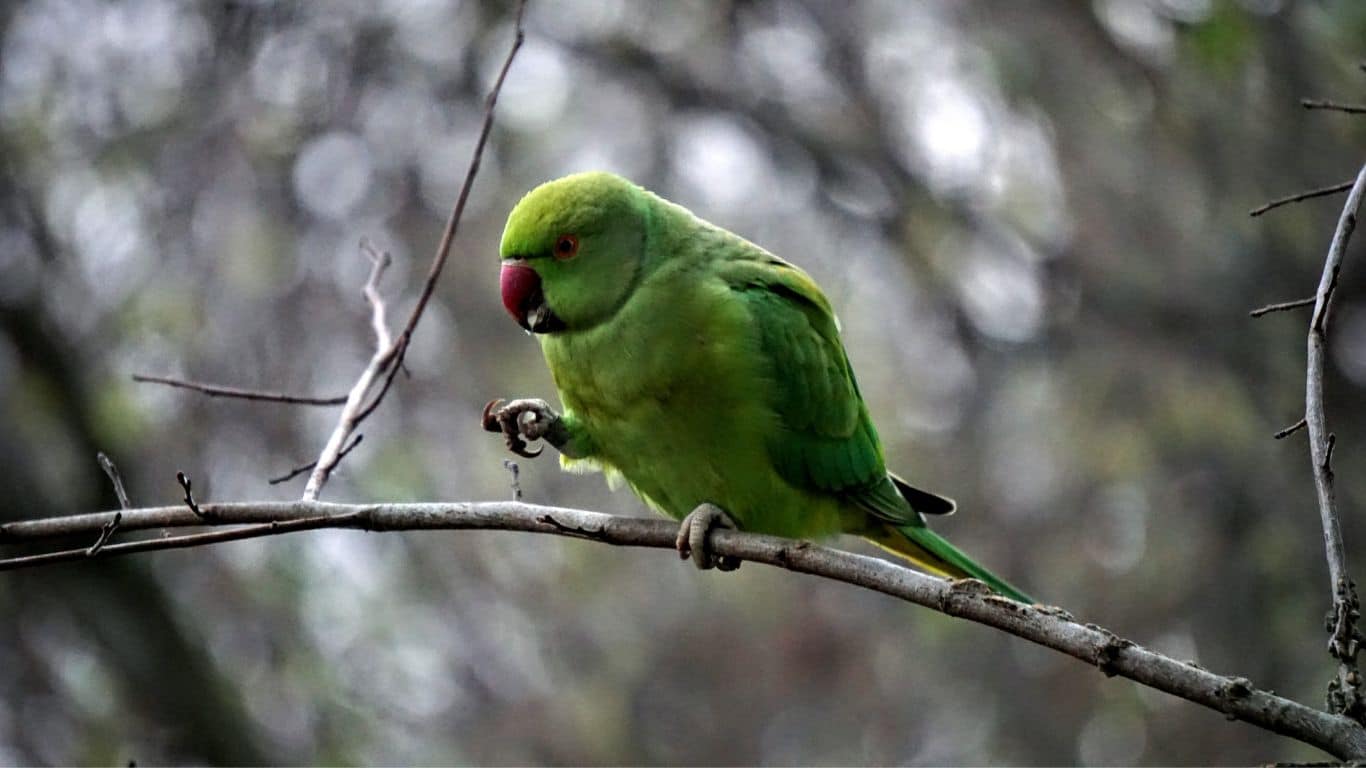Owning a ringneck parrot can be a delightful experience, but it also comes with its challenges. One of the most common concerns among ringneck owners is the issue of biting. If you’ve ever wondered, “Why does my ringneck bite me?” you’re not alone. In this article, we’ll delve into the various reasons behind this behavior and explore ways to manage and prevent it.
Understanding Ringneck Behavior
Ringneck parrots, also known as Indian ringnecks, are known for their intelligence and lively personalities. They have their own special methods of relating to the world and to the people that share it with them.
Communication Through Biting
Biting is a form of communication for ringnecks. This is how they communicate their wants, desires, and reactions to one another. Sometimes, they might bite out of excitement or frustration, trying to get your attention or communicate their desires.
Territorial Instincts: Protecting Their Space
Ringnecks can be quite territorial creatures. They might bite to protect their territory if they perceive their cage or personal space as invaded. This behavior can be observed when introducing new toys, rearranging their cage, or even approaching them too quickly.
Exploration and Curiosity
Biting can also be linked to their natural curiosity. Just like human infants put everything in their mouths, ringnecks use their beaks to explore their surroundings. It’s only sometimes meant as an aggressive action but rather a way to interact with their environment.
Fear and Insecurity
Fear and insecurity can trigger biting behavior in ringnecks. If they feel threatened or unsafe, they might bite as a defence mechanism. This is particularly common in new or unfamiliar situations.
Mating Season Aggression
During mating season, ringnecks can become more aggressive, including biting. Hormonal changes can lead to territorial behavior and an increased tendency to defend their perceived territory.
Social Interaction and Play Biting
Ringnecks are social birds, often using gentle nips as a form of play or interaction. This is more common when they’re comfortable and have established a bond with their human companions.
Establishing Dominance
Biting can also be related to dominance behavior. Ringnecks might bite to assert their dominance over their human or even other pets in the household.
Health-Related Biting
If a usually friendly ringneck suddenly becomes aggressive, there might be underlying health issues. Pain, discomfort, or illness can manifest as biting behavior. It’s essential to rule out any medical causes in such cases.
Past Negative Experiences
Past negative experiences, such as rough handling or traumatic events, can lead to a ringneck’s distrust and subsequent biting behavior. Building trust takes time and patience.
Bonding Through Positive Reinforcement
A strong relationship must be built with your ringneck via the use of positive reinforcement at every opportunity. It’s possible that discouraging biting and encouraging more pleasant relationships might be accomplished by rewarding excellent behavior with goodies or love.
Training and Socialization
Consistent training and socialization can play a significant role in curbing biting behavior. Teaching commands like “step up” and providing ample opportunities for interaction can reduce aggression.
Creating a Safe Environment
Creating a safe and enriched environment for your ringneck can reduce stress and fear-related biting. Providing stimulating toys, perches, and a calm atmosphere can make a significant difference.
Seeking Professional Guidance
If biting behavior persists or worsens, seeking guidance from an avian veterinarian or a professional bird behaviorist is recommended. They are able to discover underlying problems and propose tailored solutions to those problems.
Conclusion
In conclusion, if you want to have a happy connection with your feathery buddy, it is vital to comprehend the reasons behind your ringneck’s biting behavior. Biting is a complicated behavior that may be impacted by a number of different elements, such as communication, instincts, feelings, and health. By recognizing these factors and taking appropriate steps, you can foster a positive and trusting bond with your ringneck.
FAQs:
Q: Is biting behavior common in all ringneck parrots?
A: Biting behavior can vary among individual ringnecks, but it’s a behavior that can be observed in many of them.
Q: How can I tell if my ringneck is biting out of aggression or playfulness?
A: Pay attention to the context and body language. Raised feathers and aggressive posturing often accompany aggressive biting.
Q: Can I train my ringneck to stop biting altogether?
A: While complete elimination of biting might not be feasible, consistent training and positive reinforcement can significantly reduce biting incidents.
Q: My ringneck used to be friendly, but it suddenly started biting. What could be the cause?
A: Sudden changes in behavior can signal underlying health issues. It’s advisable to consult a veterinarian to rule out any medical concerns.
Q: Should I avoid handling my ringneck during its mating season?
A: During mating season, being extra cautious and aware of your ringneck’s behavior is crucial. Limiting excessive handling might be beneficial.
